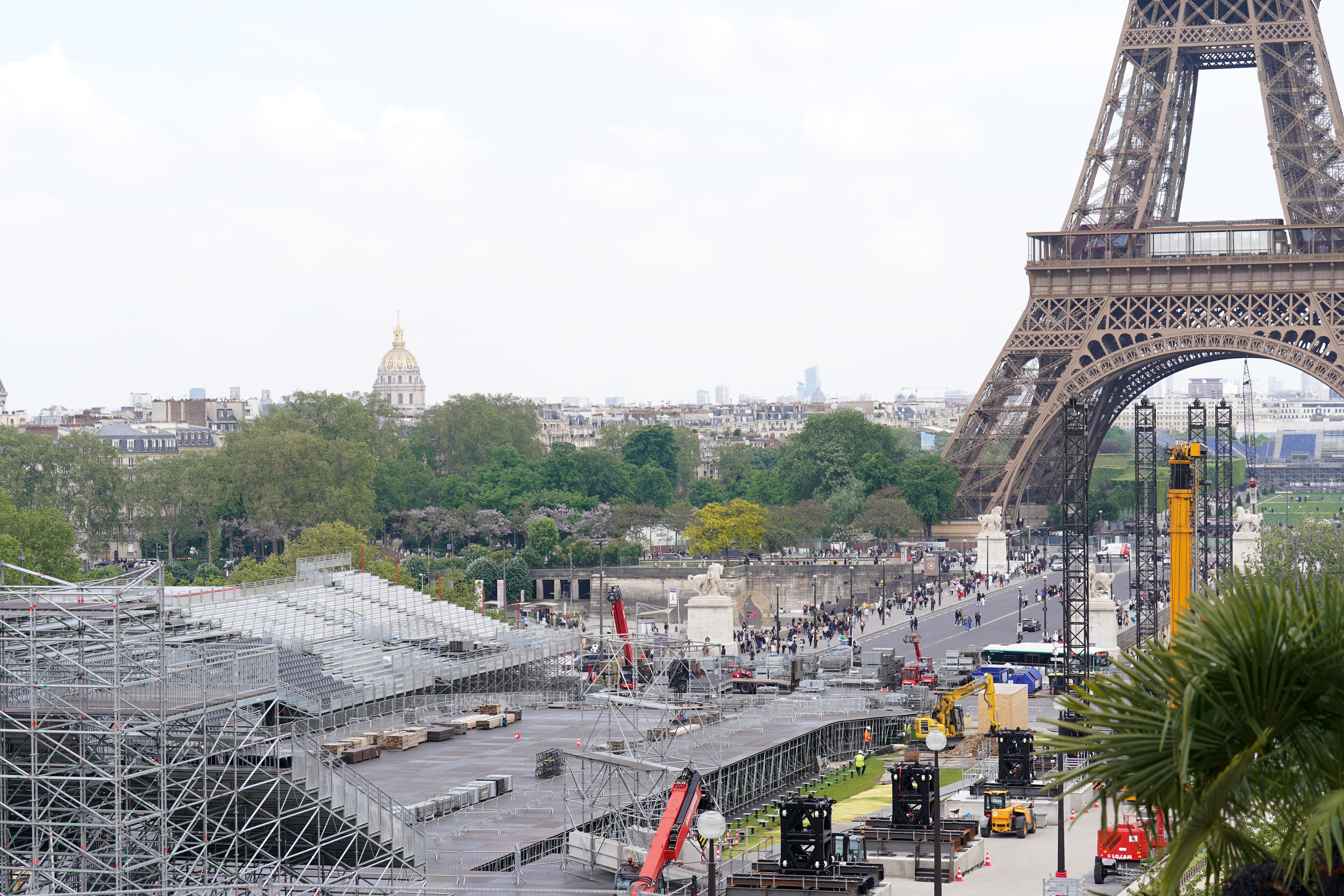Campaigners criticise Olympic sponsorship deals with high-emitting firms
Campaigners cited Paris 2024 sponsors Toyota, Air France and steel giant ArcelorMittal.

Campaigners have criticised Olympic sponsorship deals with three high-emitting firms ahead of the Paris Games starting later this month.
Top athletes have joined Badvertising, which campaigns against high carbon advertising, in calling for the International Olympics Committee (IOC) to cut ties with major polluters, citing Paris 2024 sponsors Toyota, Air France and steel giant ArcelorMittal.
It comes after the Paris Games said it has been working with its ecosystem and sponsors towards economic, social and environmental responsibility.
The Olympic Games promotes an image of health, youth and vitality, but it has a murky past of helping promote some of the world’s biggest polluter
Badvertising argued that these sponsorship deals actively undermine the IOC’s wider sustainability efforts, which said this year’s Games would be the “greenest ever”.
Andrew Simms, from the campaign group, said: “The Olympic Games promotes an image of health, youth and vitality, but it has a murky past of helping promote some of the world’s biggest polluters.
“The 2024 Paris Games promised better but its famous logo now looks like Olympic smoke rings in the sky, because the Games has failed to break with the polluting past.
“Allowing major climate polluters like the aviation and car industries, with their vast environmental impacts, to co-opt the spirit of the Games is a betrayal of athletes and fans whose health is threatened by air pollution and extreme weather.
“With climate impacts jeopardising the next generation and the future of all sport, the IOC must clear its podium of polluters.”
Olympic gold medallist Etienne Stott said: “The Olympic Games should be a celebration of the very best of humanity – but the Paris Games are celebrating those companies condemning humanity to more heat, drought and rising seas.
“If the Olympics is to take its legacy seriously and not betray its legions of fans and its incredible athlete participants, it must ditch these major polluters and adapt to the realities of a warmer world.”
Laura Baldwin, who sailed for Britain in the 2004 Athens Games, said: “The Olympics continue to cosy up with the polluters that are complicit in creating the crisis we all face.
The IOC and host cities should be leading this action, inspiring change and protecting the future of sport and all those that love it
“The Olympics could be a powerful vehicle for delivering that action, bringing humanity together through sport and community. But on its current trajectory, the Olympics risks becoming yet another victim of climate breakdown.”
Meanwhile, British Paralympian Anna Turney said: “The IOC and host cities should be leading this action, inspiring change and protecting the future of sport and all those that love it.
“But instead they continue to promote high-carbon companies that lobby against climate policy and pollute our seas and skies. We cannot normalise this form of advertising.
“The public was duped by tobacco and it cannot make the same mistake with polluting industries.”
Last month UN Secretary-General Antonio Guterres called upon the world to stop promoting its own destruction and introduce a tobacco-style ban on fossil fuel adverts.
A Paris 2024 spokesperson said it “has set a bold objective to cut the carbon footprint of the Games by half compared to an average of London 2012 and Rio 2016”.
“In order to achieve this target, we have engaged our whole ecosystem in the effort to reduce carbon emissions,” they said.
“This includes our commercial partners, who collectively finance approximately one-third of the organising committee budget.
“It’s the economic reality of sport.”
The spokesperson said event organisers have worked with partners to develop new solutions to reduce the Games’ impact, which includes powering every venue with 100% renewable energy, doubling the amount of plant-based food and creating a second-hand market for all equipment and furniture.
An ArcelorMittal spokesperson said the firm “takes its responsibility to reduce its carbon emissions seriously and is committed to reducing its CO2 emissions by 25% by 2030 and by 35% in Europe, across Scopes 1 and 2, and to achieving net-zero steelmaking worldwide by 2050.
“We are highly transparent in our disclosure of our emissions, and the challenges and progress we are making in our decarbonisation journey.”
PA contacted Toyota and Air France for comment.
Bookmark popover
Removed from bookmarks